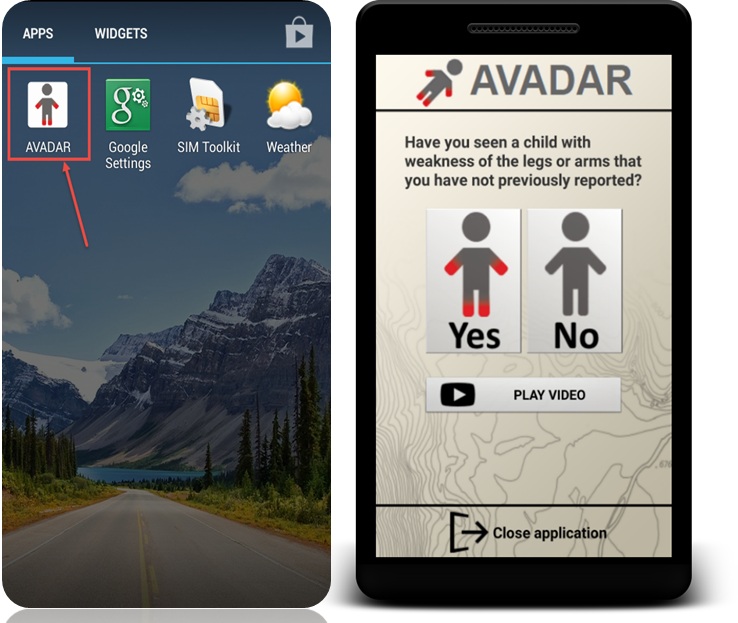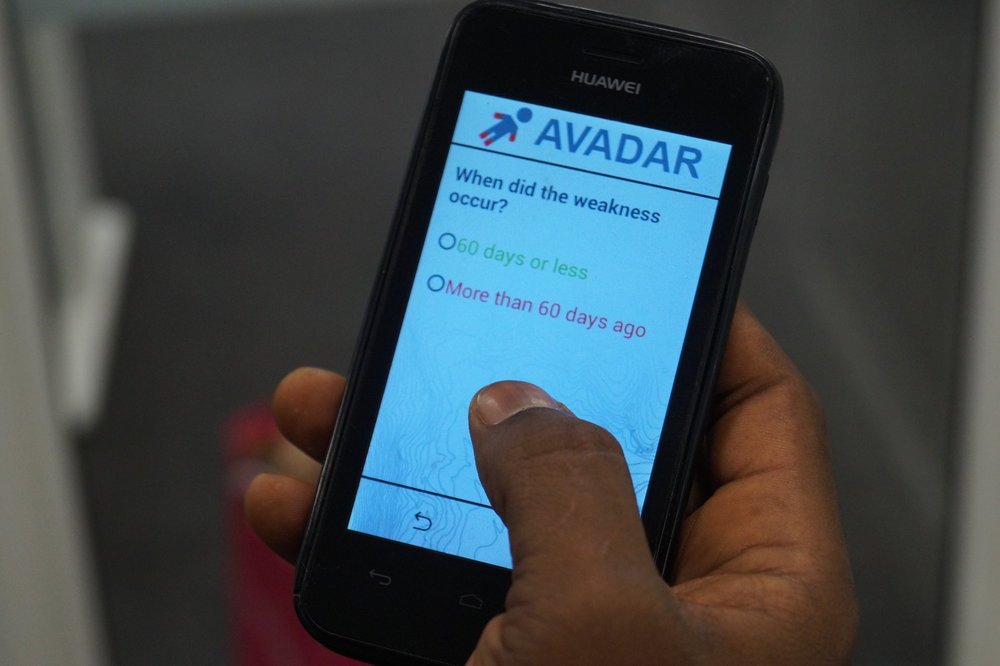Despite being polio-free for more than two years, South Sudan is still considered to be at risk of a polio outbreak.
Jacyline Eluzai is a Payam surveillance officer in the Munuki area of Juba county in South Sudan. She collects, collates and reports data on cases of priority infectious diseases such as Acute Flaccid Paralysis (AFP), Measles and Dysentery in her locality on a monthly basis. If there are unusual surges in the number of cases of these diseases, Jacyline is expected to notify the World Health Organization and other partners in South Sudan.
AFP surveillance was particularly challenging for her because of the insecurity and high migration rates in the country that weakened the routine immunization system and hindered active AFP case finding. With over 15 bomas in Munuki payam, finding, verifying, reporting and tracking AFP cases using the traditional paper-based methods was time- consuming and tedious. Most months, Jacyline found that she was unable to meet the WHO targets for AFP reporting timeliness and completeness targets. These indicators track the promptness of reporting suspected AFP cases, and the conclusiveness of investigations into reported cases.
“The protracted civil unrest left us with bad road networks and dispersed populations which make it difficult to access certain communities for AFP case finding. As a result, my reports were often incomplete. Even when I am able to visit the communities, I am often unable to track or follow up on previously- reported AFP cases because everything is paper-based.”
The Auto-Visual AFP (Acute Flaccid Paralysis) Detection And Reporting (AVADAR) project is a technology-driven process of AFP case reporting and investigation project. The project was introduced to South Sudan in May 2018, to ensure improved active tracking, report- ing and investigation of suspected AFP cases. AVADAR uses a mobile application with an in-app video in the local language, that describes the physical features of AFP to help community informants to accurately identify cases. The application also has an electronic form to collect and submit the details of any child with suspected AFP. The data is uploaded onto a server which notifies Jacyline and other surveillance officers via SMS, to conduct further investigations. AVADAR is operated in collaboration with the World Health Organisation (WHO), the Bill & Melinda Gates Foundation (BMGF), Novel-T and the South Sudan Ministry of Health. eHealth Africa provided AVADAR-enabled android phones and trained over 250 Community Informants and Disease Surveillance Officers to use the AVADAR application. In addition, eHA provides solutions to technical issues with the system.
The results have been remarkable. The community informants actively seek out and report suspected AFP cases in communities throughout Munuki payam, even in areas that Jacyline was previously unable to visit. Once she receives a notification, Jacyline investigates and confirms whether it is, in fact, an AFP case or not. Jacyline coordinates the community informants and together, they organize awareness creation activities to sensitize community members about the signs of AFP and other diseases.
“We, in Munuki, meet every week. We have decided to share the work of AVADAR with everyone we know. We have spoken in our churches, at schools, and now people know to come to us when they have concerns about AFP.”
Most importantly, Jacyline is now able to submit complete and timely reports about AFP in her payam. “AVADAR has been really helpful to me. Through AVADAR, I now get accurate data from those communities which I was unable to reach before now. The community informants are so motivated and thanks to the video in the app, they know exactly what to look for.”
Using conventional AFP surveillance methods, Jacyline investigated no more than 12 cases and confirmed only two cases annually. Now, using AVADAR, she has investigated 25 cases and detected one true AFP case in only nine months. In South Sudan, AVADAR has improved the chances of detecting a true AFP case by 43 percent. In addition, the timeliness and completeness indicators of AFP reporting have increased to 95% and 98% respectively. eHA’s commitment to improving disease surveillance systems across Africa is stronger than ever before. We continue to support countries across Africa including South Sudan to improve health outcomes for children using technology.







